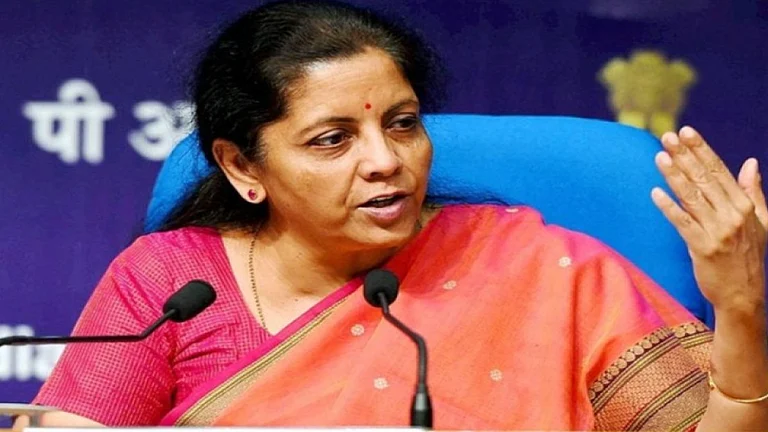Ahead of the G20 summit, an IMF-FSB paper made a strong case for a coordinated global policy action to deal with risks associated with cryptocurrencies while suggesting that these assets should not be granted official currency or legal tender status.
The policy roadmap suggested by the paper to mitigate cryptocurrency risks includes building institutional capacities beyond G20; enhancing global coordination, cooperation and information sharing; and addressing data gaps necessary to understand the rapidly changing crypto-asset ecosystem.
The Synthesis Paper: Policies for Crypto-Assets was prepared by the International Monetary Fund (IMF) and Finance Stability Board (FSB) at the request of the Indian G20 presidency.
The G20 summit is scheduled to take place at the newly constructed Bharat Mandapam in New Delhi on Saturday and Sunday, and this report will be considered by G20 leaders.
In order to protect monetary stability, the paper said, crypto-assets should not be granted official currency or legal tender status.
"Official means of payment should be limited to public currencies issued by the state. Crypto-assets pose fundamental risks and should not be considered as 'currency', as they do not fulfil the three basic conditions thereof (unit of account, means of exchange and store of value).
"Due to the risks and concerns about destabilising impacts on the international monetary system (IMS), central banks should also avoid holding crypto-assets in their official reserve assets," it said.
The Reserve Bank of India (RBI) has been emphasising that crypto assets are nothing more than gambling and should be banned.
The RBI in 2018 through a circular prohibited regulated entities from providing any service in relation to virtual currencies, including those of transfer or receipt of money in accounts relating to the purchase or sale of virtual currencies.
Cryptocurrencies are digital currencies in which encryption techniques are used to regulate the generation of currency units and verify the transfer of funds and such virtual currencies operate independently of a central bank.
The paper said jurisdictions should safeguard monetary sovereignty and strengthen monetary policy frameworks, guard against excessive capital flow volatility and adopt unambiguous tax treatment of crypto-assets.
"Comprehensive regulatory and supervisory oversight of crypto-assets can help to address financial stability and financial integrity risks while supporting macroeconomic policies," it added.
It suggested that comprehensive regulatory and supervisory oversight of crypto-assets should be a baseline to address macroeconomic and financial stability risks.
The regulation and supervision of licensed or registered crypto-asset issuers and service providers can support the functioning of capital flow measures, fiscal and tax policies, and financial integrity requirements, it said.
Observing that crypto-assets have implications for macroeconomic and financial stability that are mutually interactive and reinforcing, the report said widespread adoption of crypto-assets could undermine the effectiveness of monetary policy, circumvent capital flow management measures, exacerbate fiscal risks, divert resources available for financing the real economy, and threaten global financial stability.
The FSB along with standard-setting bodies (SSBs) have developed a global framework of recommendations and standards and the framework helps guide authorities' policy actions to address risks to financial stability, financial integrity, market integrity, investor protection, prudential and other risks associated with crypto-assets, it said.
These recommendations and standards apply the principle of "same activity, same risk, same regulation", establish a minimum baseline that jurisdictions should meet, and aim to address the set of issues common across the majority of jurisdictions, the paper noted.
To address risks to financial integrity and mitigate criminal and terrorist misuse of the crypto-asset sector, jurisdictions should implement the Financial Action Task Force (FATF) anti-money laundering and counter-terrorist financing (AML/CFT) standards that apply to virtual assets (VAs) and virtual asset service providers (VASPs).
Jurisdictions should identify and assess the money laundering and terrorist financing (ML/TF) risks associated with VAs and take appropriate steps to manage and mitigate those risks, as per the report.
The report said some jurisdictions, in particular emerging markets and developing economies (EMDEs), may want to take additional targeted measures that go beyond the global regulatory baseline to address specific risks.
"These jurisdictions may want to adapt these targeted measures to their country-specific circumstances, especially if they face elevated macro financial risks from crypto-assets. Jurisdictional characteristics that may determine vulnerabilities to macro-financial risks of crypto-assets include the size of the economy and financial system, regulatory priorities, institutional quality and capacity, and level of financial integration into the global economy," it said.
The implementation of these measures may vary across countries based on their unique circumstances and capacity constraints.
The IMF and FSB together with other international organisations (IOs) and SSBs have set out a roadmap to ensure effective, flexible, and coordinated implementation of the comprehensive policy response for crypto-assets, it said.
The roadmap includes currently planned and ongoing work related to the implementation of policy frameworks, which taken together seek to build institutional capacity beyond G20 jurisdictions; enhance global coordination, cooperation, and information sharing; and address data gaps necessary to understand the rapidly changing crypto-asset ecosystem, according to the paper.
It is to be noted that crypto-assets have been in existence for more than a decade and have displayed significant volatility and the emergence of clear risks necessitates appropriate policy responses.
So far, however, direct connections between crypto-assets and systemically important financial institutions, core financial markets and market infrastructures have been limited.


























.jpg?w=200&auto=format%2Ccompress&fit=max)




